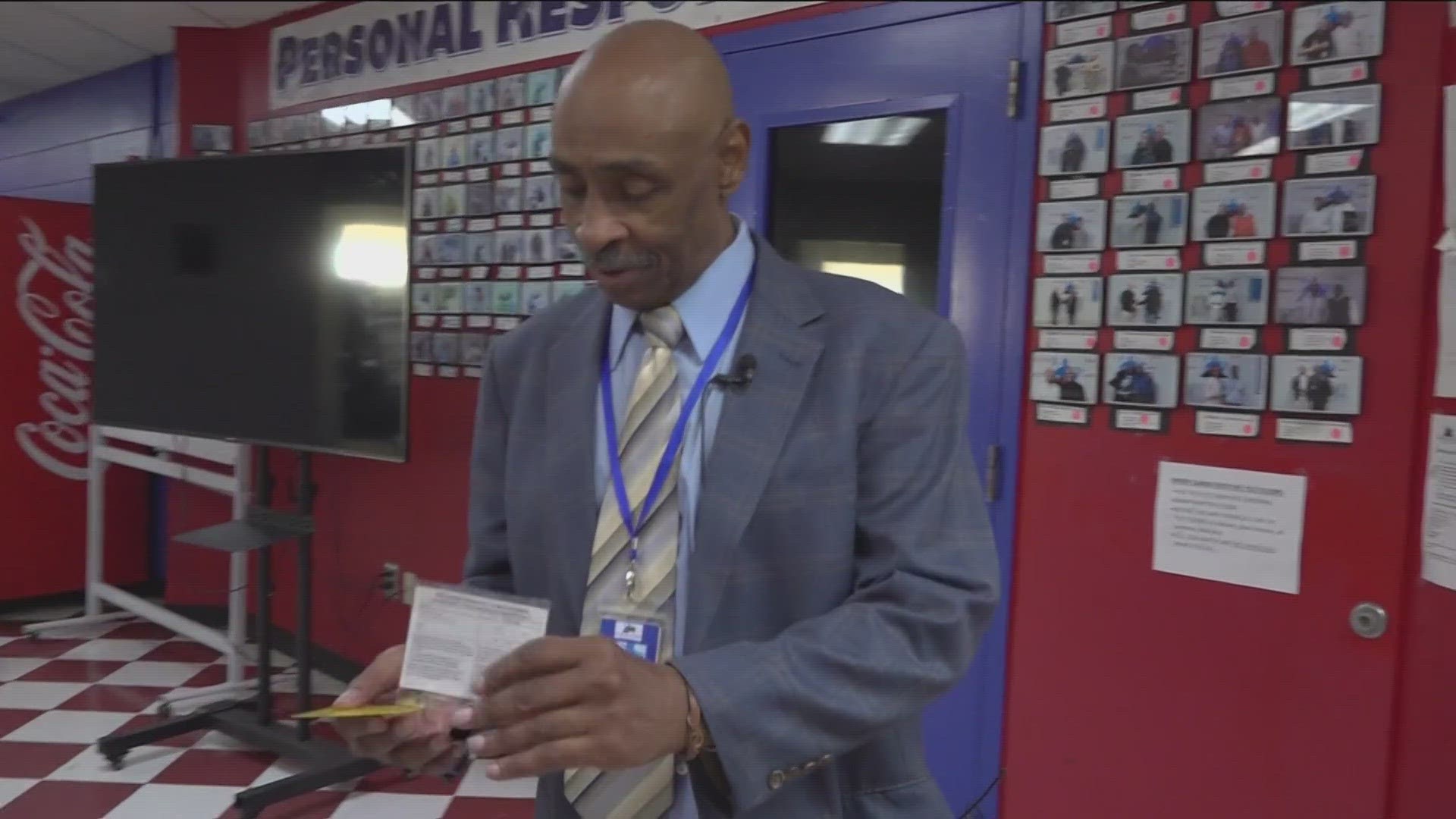ATLANTA — A local nonprofit marks ten years of helping men living on the streets turn their lives around.
On Thursday, Georgia Works will celebrate the anniversary of its efforts to break the cycle of homelessness and criminal recidivism, a cycle that Adolphus Chandler knows can be difficult to overcome on your own.
“After many years on the street, being arrested 95 times,” Chandler said, “When I decided to change, I couldn’t get a job anywhere.”
Determined to take a different path, Chandler turned to Georgia Works, ultimately becoming the third graduate of the program.
“I set three goals for myself when I came here,” he said. “To get a job with a manageable income, another to get housing, and the other was to be able to help someone.”
Chandler accomplished all three milestones, even getting hired by the program to be part of the intake team. A decade later, he’s the first person prospective clients see when applying.
“I’m the guy that meets them when they first get here,” Chandler added.
Under the program, men are housed for up to a year at Georgia Works' downtown facility located within the Gateway Center on Pryor Street. Participants get an opportunity to earn money through transitional work. Counseling, case management, GED classes and documentation support are also part of programming. Participants can even get help reconnecting with family members if they’re interested.
A wall of pictures lines the nonprofit’s hallway, featuring over 1,000 men who have graduated from the program. According to the nonprofit, 85% of graduates remain employed and housed one year later.
“We have 1,000 stories that we can be proud of, and each of them has a beginning, mostly starting the same way,” Darlene Schultz, CEO of Georgia Works, shared. “These men were unsheltered, homeless, coming out of incarceration, and they're ending on a wonderful note that they're graduating from the program.”
The program operates via private funding, Schultz said; the program spends around $2,500 per person to put a man through the program. That investment saves lives, Schultz shared and frees up other resources.
“They’re not taking up a bed at Grady Hospital. They’re not in an overcrowded Rice Street jail. They’re not in an ambulance ride because they’ve collapsed on the street. So that’s a significant savings,” she added.
While the program has stringent requirements around sobriety, curfew and meeting attendance, Schultz said those willing are given the resources available to start a new chapter.
“They lay it all out for you,” Leslie West, who has been in the program for five months, shared. “All you have to do is be willing to follow what they say because you're really having to rebuild your life from square one.”
As for Chandler, he jokingly states the program was built just for him—the opportunity to change his life and help others, arriving just when he needed it most.
“I’m just grateful. I don’t want to even imagine if [Georgia Works] wasn’t here,” Chandler added. “I don’t know where my life would be now.”

